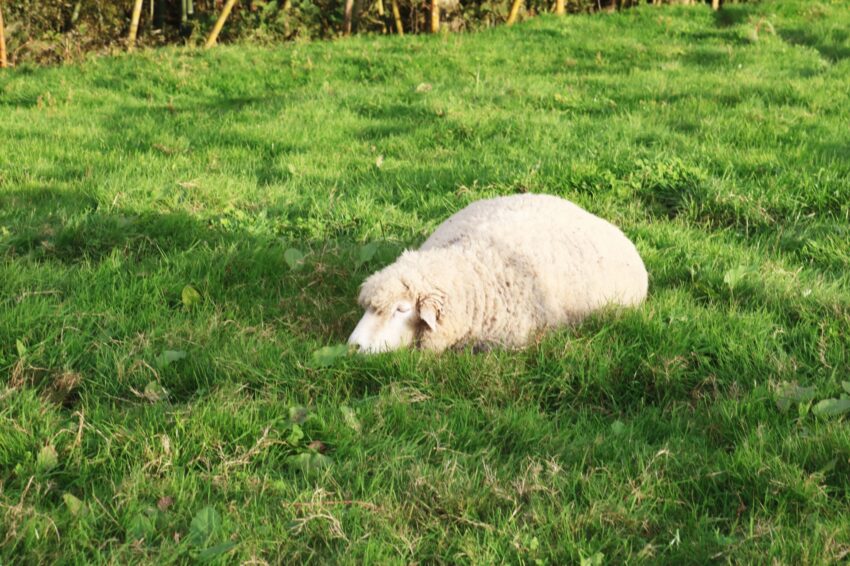Getting a Good Night’s Sleep

The end of summer break marks a transition back to regular routines for many, not just for students but for teachers as well. Whether you spent your break traveling or relaxing at home, getting back into the groove of work and life can be a bit of a challenge. One of the most important aspects I hear online and from my fellow ALTs is readjusting or resetting your sleep schedule. In this post, we’ll discuss practical tips to help everyone reset their sleep schedules and make a smooth transition to their daily routines.
This is the one that I am currently working on as I try and get back into the groove of waking up early and that is, creating a bedtime routine. As you return to work, engage in activities that promote relaxation before bed. Consider reading a book, ideally something light fiction, manga or graphic novel. Something where you can relax while you read it.
Also practicing gentle stretches, or indulging in a warm cup of herbal tea or milk. These activities can signal to your body that it’s time to wind down and prepare for restful sleep. It’s essential to avoid screen time at least an hour before bed, as the blue light emitted by devices can disrupt your body’s production of melatonin a hormone that regulates sleep. Even with a blue light filter on your phone it’s been shown that things like social media or YouTube, negatively impacts sleep by shooting us with shots of adrenaline and dopamine that keep us awake for longer.

Photo by はたらくじん
The most important thing to pay close attention to in my personal observations is your caffeine and food intake, especially in the afternoon and evening. Consuming too much caffeine or heavy, rich meals close to bedtime can interfere with your sleep patterns. Caffeine is a stimulant that can disrupt your ability to fall asleep and reduce the quality of your sleep. opt for light, nutritious meals and limit caffeine consumption during the latter part of the day to help your body adjust to its new sleep schedule.
I have often heard that any caffeine consumption from 4 pm on-ward has a negative effect on your sleep, so unless you have to I would avoid drinking anything caffeinated past that time. Crafting a comfortable sleep environment is crucial for resetting your sleep schedule successfully.
Invest in blackout curtains to block out external light, ensuring a darker sleeping space that promotes better sleep. Select a mattress and pillows that provide adequate support and comfort for a restful night’s sleep. Maintaining a cool room temperature, as a cooler environment is generally more conducive to sleep. So, investing in an electric fan or finding a cozy spot underneath your air conditioner, with a light blanket is what I would recommend. I can’t go to sleep unless it’s at least slightly cool in the room, summer, winter, spring or fall. A comfortable, inviting sleep environment can significantly contribute to the quality of your rest as you transition back to your routine.
Resetting your sleep schedule after a summer break as an may require some adjustment, but the benefits are well worth the effort. A well-regulated sleep pattern will enhance your overall well-being, energy levels, and performance in the classroom. By creating a bedtime routine, managing your caffeine and food intake, and establishing a comfortable sleep environment, you’ll quickly adapt to your new schedule. As you embrace these practical steps, you’ll be better prepared to excel in your ALT role while enjoying a renewed sense of balance and vitality in your daily life.
Photo Credits:
Additional photo by はたらくじん
All other content (text) created by the original author and © 2023 MUSUBI by Borderlink
RELATED
-

ALT August: How to Live Happy and Healthy
Top Photo: Jake Givens on Unsplash Hey guys! Welcome to your summer vacation. If you’re like I was, you’re ne… -

Beat the Heat This Summer in Japan
Top photo: ヨシボー on PhotoAC What is heat exhaustion and heatstroke? With Japanese summer comes hot and humid we… -

Being Healthy In Japan On A Budget
Top photo: kotestu427さん on PhotoAC In this article, I am going to be discussing the different ways in which yo…
PEOPLE

Zane Kane
As an expat who has lived in Japan for five years, with two years spent in Iwate and three in Osaka, I have had a unique and insightful experience. Living in two vastly different areas of Japan has given me a deeper understanding of Japanese culture and the nuances of daily life in both urban and rural areas. In Iwate, I was able to experience the stunning natural beauty of the northern part of Japan, while in Osaka, I enjoyed the city's famous food and vibrant nightlife. I have also had the opportunity to try different regional foods and traditions, which has contributed to a more well-rounded perspective of the country. Overall, my five years living in Japan has provided me with valuable insights and experiences that have enhanced my understanding of the country and its culture.


